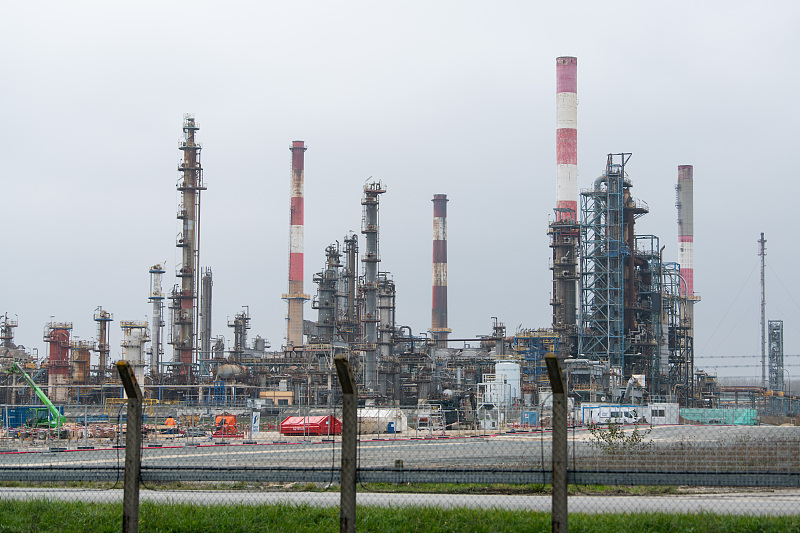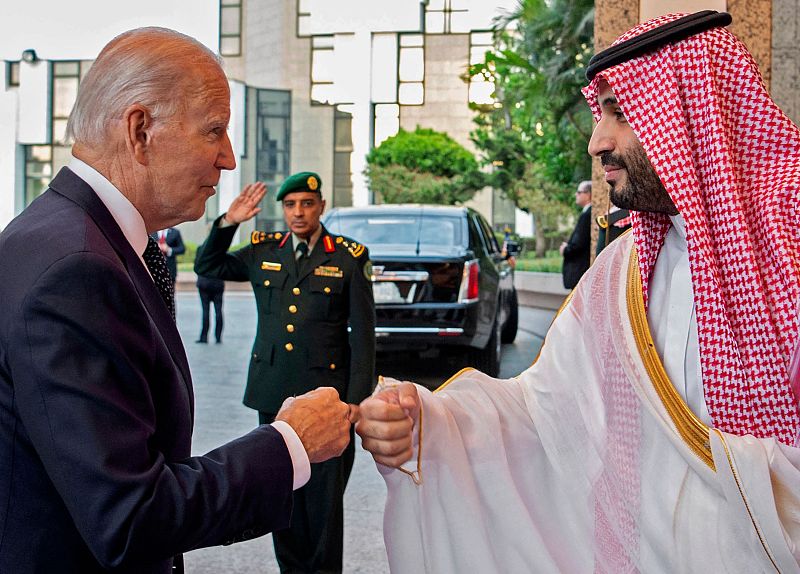
Chimneys and flare stacks at the TotalEnergies SE Grandpuits oil refinery in Grandpuits-Bailly-Carrois, France, December 1, 2022. /CFP
Chimneys and flare stacks at the TotalEnergies SE Grandpuits oil refinery in Grandpuits-Bailly-Carrois, France, December 1, 2022. /CFP
The price cap on Russian oil exports, reached by EU, the Group of Seven (G7) nations and Australia, has taken effect on Monday, in an attempt to limit the fossil fuel earnings that support Moscow's budget to finance its military movements in the ongoing Russia-Ukraine conflicts.
The Western countries reached a deal for a 60 U.S. dollars-per-barrel threshold. Under this, insurance and reinsurance companies and other firms handling cargoes of Russian crude would only be able to deal with Russian crude if the oil is priced at or below the cap. Most insurers are located in the EU or the UK and could be required to participate in the cap.
Experts say the cap will have an uncertain effect as worries over lost supply through the boycott compete with fears about high inflation, energy shortage and lower demand from a slowing global economy, which may further mire European countries in an economic recession swamp.
Impact "remains ambiguous"
Analysts at Japan's Mitsubishi UFJ Financial Group said in a note Monday that the scale of the price cap's impact "remains ambiguous." They added, "we have been skeptical on the practicalities of its success."
Simone Tagliapietra, an energy policy expert at the Bruegel think tank in Brussels said that the price cap, which stands at 60 dollars per barrel will not have much impact on Russia's finances because it would be near where Russian oil is already selling. And the price has been above Russia's cost of production of between 30 and 40 U.S. dollars per barrel.
Hard to reach common ground
However, reaching the current price cap has already spent Western countries several months to dent Russia's oil profits. The wrangling over where to set the cap highlighted the disagreement on which goal to pursue: hurting Russia's finances or taming inflation, with the U.S. coming down on the side of controlling price increases, said Maria Shagina, a sanctions expert at the International Institute for Strategic Studies in Berlin.
Disrupt global oil supply chain
Reacting to the price cap, the Russian government has repeatedly insisted that it will not accept or abide by any such price caps, and will simply refuse to sell its oil to any countries that support it. It is also preparing an official response to such a boycott
The Russian side also voiced that the move by the West was a gross interference which contradicted the rules of free trade and the adoption of these decisions will not only impact Russia, but "destabilize the world energy markets" by further tightening global oil supplies and pushing oil prices higher amid the background that major oil producers have decided to maintain their production cuts.

President Joe Biden is to "re-evaluate" the U.S. relationship with Saudi Arabia in light of the OPEC+ decision to cut oil production, a White House spokesperson said on October 11, 2022. /CFP
President Joe Biden is to "re-evaluate" the U.S. relationship with Saudi Arabia in light of the OPEC+ decision to cut oil production, a White House spokesperson said on October 11, 2022. /CFP
OPEC+ keeps output cut target
Earlier on, the Organization of the Petroleum Exporting Countries (OPEC) and its allies, a group known as OPEC+, agreed to stick to its oil output target, which agreed to cut production by two million barrels per day from November until the end of 2023. The U.S. and other Western countries have accused OPEC+ of pushing up oil prices and fueling inflation, whereas OPEC+ has insisted that the cut was made to stabilize the oil market as crude prices had declined amid a weaker global economic outlook.
"A buyers cartel”
While Russia is the current price cap focus, experts said that the price group formed by EU, G7 countries and Australia has triggered anxiety about a "buyers cartel" in the OPEC+. Analysts from Rystad Energy noted on Monday that "the general view among OPEC countries is that the price cap idea sets a bad precedent and could be implemented against that group in the future."
The U.S. has denied the claim of a “buyers cartel". Ben Harris, a Treasury department official speaking at Harvard University on Monday, said that this is merely a sanction against Russia, adding, "This is not about a global buyers cartel for all oil. This is about oil that is coming out of Russian soil and nothing else."
Global oil prices may further rise
Under the current backdrop, Commerzbank AG (CBKG) forecasts that the EU embargo and price cap on Russian oil could lead to a significant tightening in the oil market in early 2023, with London Brent crude futures rising back to 95 U.S. dollars a barrel in the coming weeks.
It may backfire
Currently, the energy crisis and high inflation are worsening Europe's economic outlook. European industry has been hit hard by soaring energy prices, while investment expectations are weakening amid rising interest rates and greater uncertainty about the economic outlook. According to the European Commission's autumn economic forecast report for 2022, most EU member states are expected to fall into recession in the fourth quarter of this year, and economic activity will continue to contract in the first quarter of next year.
The Wall Street Journal (WSJ) reported that compared with natural gas, the oil market is more globalized, and if an oil crisis happened, it would have a wider impact. The more the oil price cap hurts Russia, the greater the risk backfires.
( With input from AP, Reuters and Xinhua)